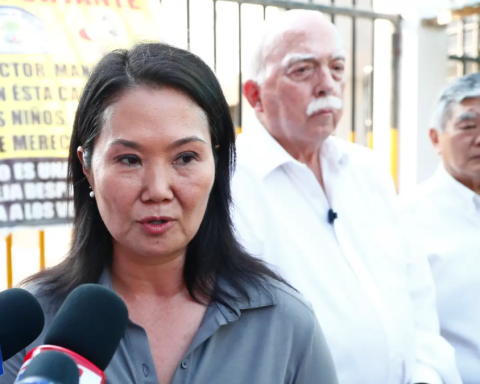
The results of the latest Economic Expectations Survey carried out by the Central Bank once again reduced the growth estimate for 2022 to 2%. Weeks ago, a BCI report also corrected the GDP growth projection for the same year downward, from 2.1% to 1.4%. Not only that, the same report spoke of a “high probability” of entering a recession between the third quarter of 2022 and the first of 2023. And if the excuse were that the data is very recent, at the beginning of June, the Report was betting for a maximum of 3 expansion points for next year. This is the reality of the figures with which monetary and public policy decisions are made in the country.
However, “the problem” for the ruling right wing that is changing sides and betting their chips on the candidate of the Christian Social Front, José Antonio Kast, is that he, as the center-left and left of Chile have been questioned, It would also be falling into the questionable dissociation between the technical and the political, since the financing of its program is based on the expectation of growth of between 5 and 7 percent, nineties figures “and impossible”, as recognized by the official conglomerate.
Not for nothing, and as his candidacy has become potentially competitive, cross-sectional criticism rages against him, not only because of the calculations made by his economic advisory team, but also based on the proposals they defined to achieve the goal, those that have been described as “fanciful” both in the world of politics and in the financial world.
Is this a problem for your supporters? Apparently it is not so much, because when consulted about the infeasibility of the proposal, based on the reality that the country is experiencing, what has been done mainly is to try to lower its profile under the argument that “after the first round everything changes ”. And beyond the signals that are being given to the market – supine concern of the Government -, they hinted that the option of reaching La Moneda is greater than the immediate effects that a proposal like that can generate in the financial world up to date from today.
Another of the phrases that were repeated was that “government programs are not an issue for many,” a conclusion that would collide head-on with the campaign action of the different commandos that have polished each of the faults that, in their turn, it appears to contain the adversary candidate’s program proposal.
And although, like all competing commands, the main economic adviser to José Antonio Kast, Eduardo Guerrero, has been qualifying the progressivity of the policy that is intended to be implemented, the program is clear in its definitions. But beyond the questioning of the proposals, which we will now go on to review, the real concern that has been installed in the ruling party leaderships – which without a microphone recognize the former UDI deputy as the most likely winner of the first round – is the signal, both to the market as well as to the citizens, of the irresponsibility that means supporting a program that does not give in the numbers, which leaves them in the “line of fire” of the questions that they themselves make to their opponents. In any case, they acknowledge, “they are not enough arguments” to rethink their actions in the short term.
In short, the economic proposal of the Christian Social Front points to a reduction of two points in VAT, from 19 to 17 percent, which is calculated to be about 2,060 million dollars less for the fiscal coffers, and considering that It is the first public silver collector for the State. In turn, it proposes a 10-point cut to first-category taxes on companies, from the current 27 to 17, calculated by some experts at 3.84 billion dollars less, which in sum exceeds 5 billion dollars less , this in a context of a reduction in effective spending of 20%, as proposed by the 2022 budget. To this is added the idea of zero taxes on SMEs and startups that invoice less than 25 thousand UF a year. All within the framework of a public debt that is forecast between 37 and 45 percent.
Not for nothing has the program received high-caliber questions, starting with the official president of Chile Vamos, Sebastián Sichel, along with his political coordinator, Pedro Browne, who described JA Kast’s proposal as “populist” or having “a few holes deep ”. But are not the only ones. The former Minister of Finance of Michelle Bachelet, Andrés Velasco, pointed to the proposals of both Gabriel Boric and the Republican candidate, calling them “fanciful”, pointing to the latter as one in which “there is not even an intellectual attempt to say ‘we are going to do such a thing ‘,’ we are going to take such a measure ‘,’ we are going to close the tax gap in such a way ‘. Everything is left to the corporate-animal spirits and economic growth. “
The also former Minister of Finance, but from the current Government, Ignacio Briones, said that “we have a candidate from the left who says that he is going to raise taxes by 40 percent and one from the right who will lower them by 20, neither of the two proposals seems serious or credible. “, Held.
From the financial world, although a pro-growth program is recognized, doubts are installed around the viability of implementing the proposal in the context of the country. Carolina Ratto, head of equity research at Credicorp Capital, told The second that “it is clear that the program is pro-market: it talks about reducing taxes, which would bring more investment and could generate more growth. And it does not talk about changing the pension system. But the great dilemma is that Chile went through a very dramatic process of social outbreak for the country and it is not known if Kast’s proposals will be enough to calm the expectations that people have today ”. Along the same lines, Cristián Araya, manager of Variable Income at Vantrust Capital, pointed out at the same evening that “one of Kast’s greatest difficulties may be ungovernability and strong parliamentary opposition, which goes against what it tries to do. To that you add a Constitutional Convention in parallel that will play against him, a new Constitution that could change everything, and then you think that his program is more of a declaration of intentions ”.
In a report to its clients, the financial firm JP Morgan described the proposals of both José Antonio Kast and Gabriel Boric as “audacious”, concluding that either of the two, if effective, would leave a public debt of 50% of GDP to the 2027.
From the world of academia, and in an interview with Radio University of Chile, the economist and professor at the Casa de Bello, Manuel Agosin, on the proposal Kast opined that “it is a complete absurdity, that responds to a purely ideological vision.” On the side of the Catholic University, the also economist Francisco Meneses, through his social networks, indicated that “many times the left is accused of being fiscally irresponsible, that is a myth, and when looking at Kast’s program, it remains demonstrated that populism comes from the right ”. In the same thread, he pointed out that “as planned, it would make the Chilean State go bankrupt in less than 4 years.”
The dean of the Faculty of Social Sciences of the Autonomous University, Tomas Duval, pointed out that “I think something has happened with Kast: that deep down the right does not see that Kast is going to make a radical change to the model. My impression is that this perception is what they have beyond the figures or the viability that the economic program would have. That has been the point by which perhaps that potential electorate that would be voting for Kast comes out to a large extent, who, deep down, he is not going to introduce major modifications to the model as could be, in contrast, with Boric’s candidacy ” .

















